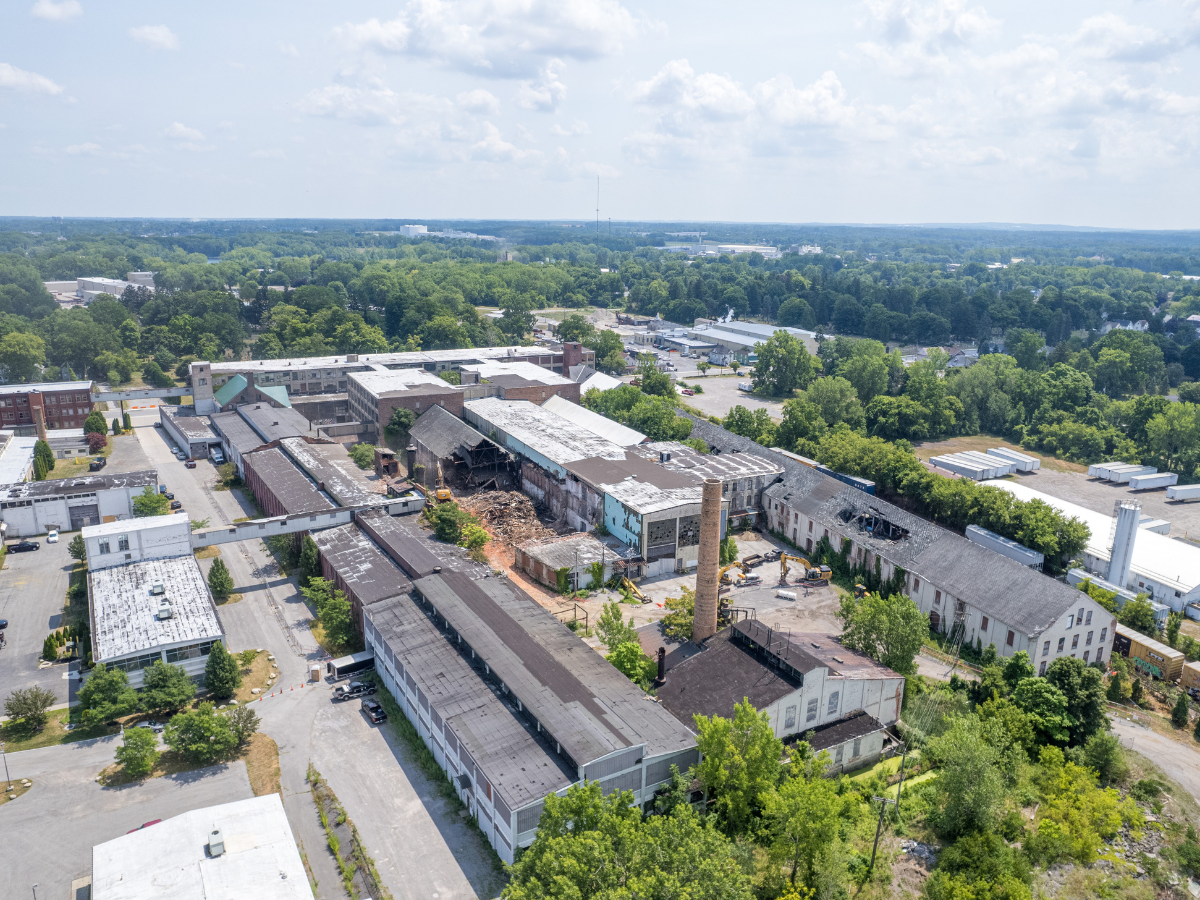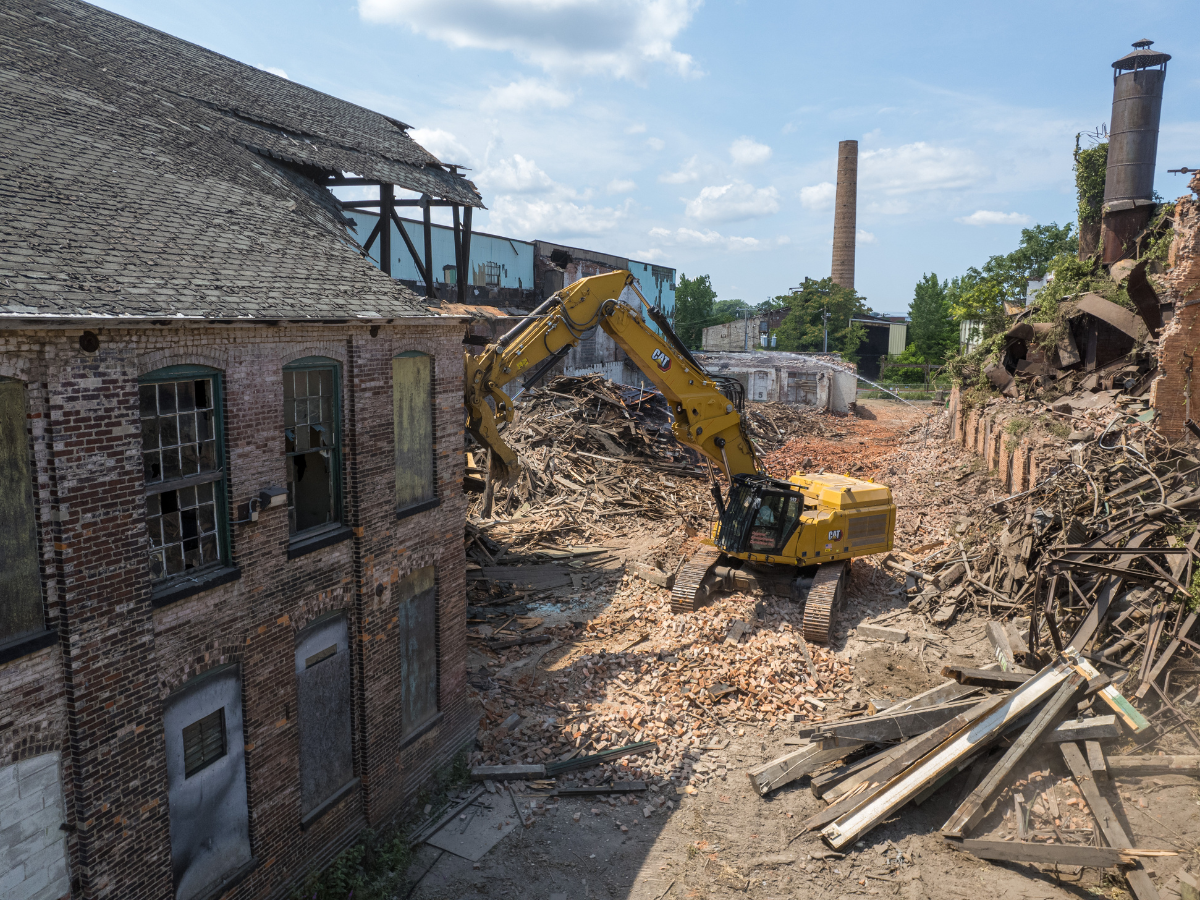What Happens to Demolition Debris? A Guide to Recycling & Waste Disposal
When a building is torn down, thousands of tons of debris are left behind, ranging from concrete and steel to wood, glass, and hazardous materials. Many people wonder, where does all that waste go? Is it simply dumped into a landfill, or is there a more responsible way to handle it?
At Regional Environmental Demolition Inc. (R.E.D.), we prioritize sustainable demolition practices, recycling, and proper hazardous waste disposal to minimize the environmental impact of every project. In this guide, we will break down how demolition debris is processed, what gets recycled, and how we safely dispose of hazardous materials.
1. What Types of Debris Are Left After a Demolition?
Every demolition project produces a wide variety of waste materials. Some can be recycled or repurposed, while others require special handling and disposal.
Common Types of Demolition Debris:
• Concrete & Masonry – Foundations, walls, and sidewalks.
• Wood – Framing, floors, and roofing materials.
• Metals – Steel beams, aluminum siding, copper wiring.
• Glass – Windows, doors, and decorative glass elements.
• Plastics & Insulation – Vinyl siding, PVC piping, and foam insulation.
• Asphalt & Roofing Materials – Shingles, tar, and rubber roofing.
• Hazardous Waste – Asbestos, lead-based paint, mold-contaminated materials.
Each material requires specific handling, processing, and disposal to ensure compliance with environmental regulations and maximize recycling efforts.
2. How Is Demolition Waste Recycled?
Instead of sending materials to a landfill, many demolition materials can be salvaged, repurposed, or recycled. Recycling reduces environmental impact, lowers disposal costs, and conserves natural resources.
Commonly Recycled Demolition Materials:
✔ Concrete & Brick – Crushed into aggregate for new construction projects.
✔ Wood – Repurposed for furniture, mulch, or biomass fuel.
✔ Metal – Melted down and reused for new building materials.
✔ Glass – Recycled into new windows and glass products.
✔ Asphalt – Reprocessed for use in new road construction.
At R.E.D., we partner with recycling facilities in Western New York to ensure that as much demolition debris as possible is diverted from landfills.
3. Safe Disposal of Hazardous Demolition Waste
Not all demolition materials can be recycled. Certain hazardous materials require special handling and disposal to prevent environmental contamination and protect public health.
How We Handle Hazardous Demolition Waste:
• Asbestos – Removed by certified professionals and transported to designated disposal sites.
• Lead-Based Paint – Carefully contained and disposed of according to EPA regulations.
• Mold-Contaminated Materials – Properly sealed and transported to approved facilities.
• Toxic Chemicals & Solvents – Neutralized and disposed of safely.
R.E.D. follows all local, state, and federal regulations to ensure that hazardous waste is handled responsibly and does not pose a threat to the environment.
4. Why Proper Waste Management Matters
Responsible demolition waste management isn’t just about following regulations—it’s about protecting the environment and creating a more sustainable future.
Key Benefits of Proper Demolition Waste Disposal:
✔ Reduces landfill waste – Diverting recyclable materials minimizes the burden on landfills.
✔ Lowers environmental impact – Recycling reduces the need for new raw materials.
✔ Ensures safety – Proper hazardous waste disposal prevents contamination and health risks.
✔ Supports green building practices – Many demolition materials can be repurposed in new construction.
At R.E.D., we are committed to eco-friendly demolition practices that prioritize recycling, waste reduction, and regulatory compliance.
Choosing a Demolition Contractor Who Cares About Waste Management
If you are planning a demolition project in Buffalo, Niagara Falls, or Western New York, it is important to work with a contractor who prioritizes responsible waste management.
At Regional Environmental Demolition Inc. (R.E.D.), we ensure that demolition debris is handled safely, efficiently, and sustainably. From recycling materials to proper hazardous waste disposal, we take every step to minimize environmental impact while delivering expert demolition services.
Need a demolition contractor who prioritizes responsible waste disposal? Contact R.E.D. today to learn more about our eco-friendly demolition services.






